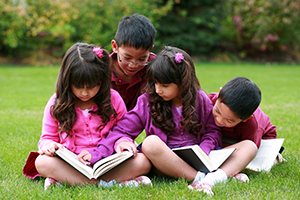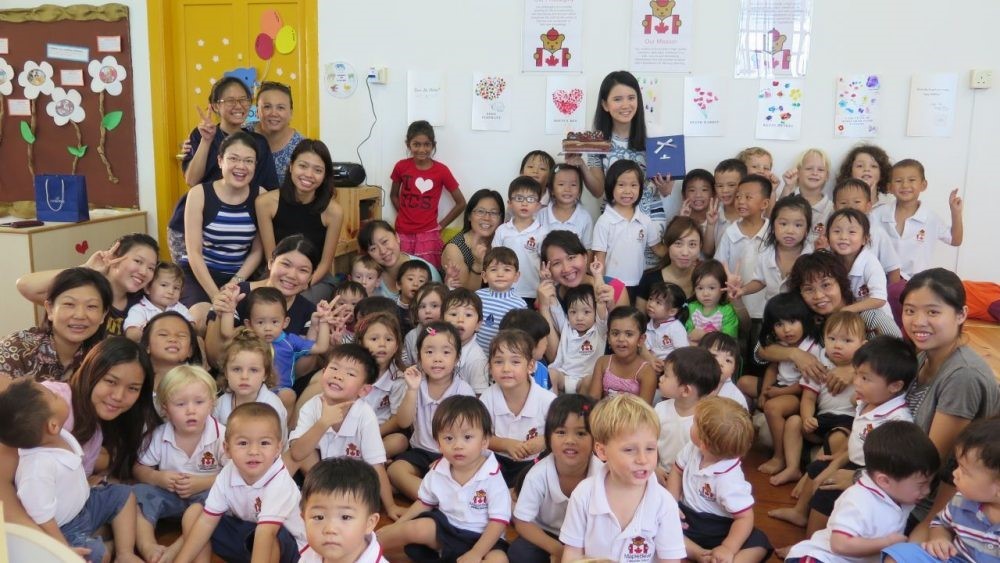3 ★
Maple Bear Canadian Preschool Sector 141, Noida, Sector 137, Noida

Bear Care, the Maple Bear infant programme, recognizes that the infant is a capable and active learner. The infant does not need to be “taught” lessons or content. The infant is respected as an already very competent learner, and is allowed, and encouraged, to explore, play, discover and practice in ways, and on a schedule, that best fits his or her emerging abilities, interests and skills. The Bear Care programme understands that strong attachment between the infant and care-giving adults is critical to healthy growth, development and learning. Infant programs are organized to ensure that environments, experiences, activities and routines have relationship building as the starting point. The care-giving teacher is the most important part of the learning environment for the infant. Bear Care places the infant at the center of the curriculum. The design and development of curriculums is based upon knowledge of the sequence and milestones of infant development combined with an understanding of the present needs and interests of the individual infants. Infant programmes cultivate an “unhurried” atmosphere and the schedule is arranged to best meet the needs of the infant. The infant’s day will have consistent and predictable routines, few transitions, and lots of time for repetition and practice. We design learning environments that keep the infant safe while allowing for exploration and discovery. Spaces and places have developmentally appropriate toys and furnishings that will accommodate the needs of crawlers, walkers and almost-walkers. Maple Bear recognizes the importance of the family. Daily communication between parents and program staff ensures that the well-being of the child remains a priority. Please go to “Find A School” for more information on the Maple Bear centres which provide the Bear Care Infant Programme.
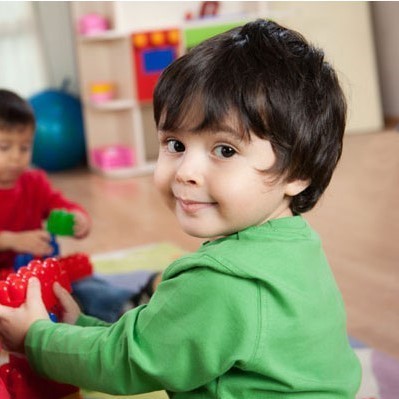
Every child deserves the best possible start in life and the support that enables them to fulfill their potential. Children develop quickly in the early years and a child’s experiences between birth and age five have a major impact on their future opportunities. Maple Bear sets high standards to ensure children’s readiness for elementary school. Maple Bear gives children the broad range of knowledge and skills that provides the right foundation for good progress through school and life. English Language Arts By the end of Senior Kindergarten children will communicate effectively in English by listening and speaking, will have a good understanding of alphabetical symbols, will be able to read basic text in English, will be able to use phonic strategies to approach new words, will be capable of using writing strategies appropriate for beginners, and finally, will be able to use and respond to media. Personal and Social Development Children will learn to share, to respect others, to listen, and to understand that people have different talents and functions in our society. Science Children will demonstrate curiosity about the natural world, demonstrate knowledge of characteristics of common materials and identify cycles in nature using techniques of observation. Creative Activity Children will understand colour, shape and use of media to express ideas. They will be able to describe responses to music, art, drama and dance. Physical skills and well-being Children will develop physical skills (such as balance and flexibility), an awareness of health and safety rules, an understanding of sharing, taking turns, cooperation and socially acceptable behaviour. Mathematics Children will become problem solvers. They will learn about patterns in the environment, number concepts, comparisons, sets, basic formal operations (e.g. adding and subtracting), 2-D and 3-D objects, simple graphs, basic measurements, estimation and basic probability. Language development and acquisition Children enter Maple Bear School with some basis in their home language. In learning their first language children pass through several stages in predictable order: listening, developing understanding, speaking, reading and writing. Successive stages begin while preceding stages are still in development. When Maple Bear children learn English as a new language their development in English proceeds through the same stages in the same sequence as in learning their first language. Research shows that learning two languages at an early age offers both linguistic and cognitive advantages. Immersion methodology is used in Maple Bear schools to develop competence in English. This means that children learn to listen, speak, read, and write in English by surrounding them with conversation and instruction in English. Children learn in English right from the first day. Literacy, which includes listening, speaking, reading and writing, is one of the most important goals of the Maple Bear program.
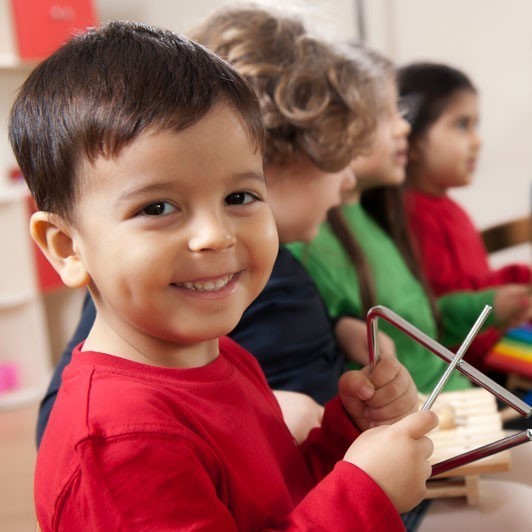
Maple Bear has developed an excellent, hands on, rigorous and relevant elementary curriculum in each subject area based on the highly successful Canadian approach to learning and instruction. Maple Bear encourages the development of the child’s basic skill in literacy, numeracy, science, technology, analysis, problem solving, information processing and computing, Critical and creative thinking skills are promoted and encouraged so that children can be successful in today’s world. The Elementary Program is designed to educate the whole child – physically, intellectually, emotionally, and socially. The Maple Bear Elementary Program require a minimum of 50% instruction in English. The remaining portion of the program is conducted in the home language. Subjects taught in English include English Language Arts, Mathematics and Science. Instruction in the home language, History, Geography, Physical Education, the Arts, and other subjects is conducted in the students’ first language. English Language Arts At all grades, the focus is on acquiring language and literacy skills through listening, speaking, reading and writing. Students learn to read and produce a wide range of texts, including media, transactional (letters, e-mails, etc.), and tertiary texts. The level of sophistication grows with the advancing grade levels. All classrooms must be literacy-rich environments. Mathematics The themes of number sense and numeration, measurement, geometry and spatial sense, patterning and algebra, data management and probability are developed in increasing complexity at each grade level. The program emphasizes problem solving, understanding concepts, application of procedures and communication about mathematics. Science The science program emphasizes enquiry and the use of the scientific method in science classes. At each grade level increasingly complex topics are studied from the fields of biology, physics, chemistry and environmental science. The emphasis is on experimentation and application rather than memorization.
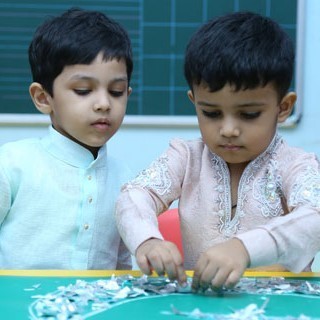
Maple Bear is unique because it is based on immersion learning which is different from more traditional language instruction. Maple Bear stands out among other immersion and language programs because its system is proven in 20 different countries. When is the best time to start a bilingual education? The research is clear, the younger the better. There is a definite window of opportunity when learning languages is the easiest. Up to the age of 7, children can learn a new language more effortlessly. As development progresses, this window of opportunity begins to close and further learning has to be gained through hard and more traditional learning. Other studies have also shown that children who learn a language before the onset of adolescence are much more likely to have native-like pronunciation. Immersion students will speak language naturally and will be able to manipulate and utilize words in any context. By contrast, rote learning may cram a large vocabulary into a child, but he/she may only use them in a specific sentence or context. So what are the benefits of bilingual education for young learners? For a start, it’s very good for development of a second language, a goal of many of our parents who chose Maple Bear for their children. Young bilingual learners have also been shown to have: better concentration, analytical skills and multi-tasking capabilities; they learn to read sooner than monolingual students; they have an increased sense of self-worth and identity; they have the ability to live abroad and learn other foreign languages later in life; enjoy exposure to more than one culture which leads to a global perspective. The Maple Bear learning environment is structured so that the children learn language in a natural way, the same way in which they learned a first language.
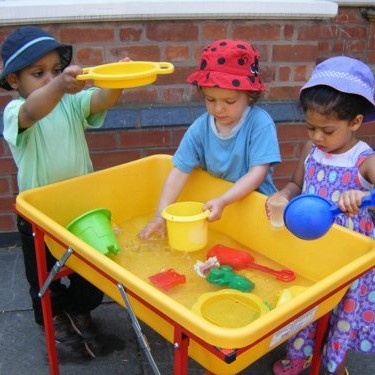
Play is the serious work of children. Children are naturally curious about their world and are eager to learn about it. They need to manipulate, explore, and experiment with real objects. Through play, children clarify information, integrate ideas from their previous experiences, and explore and experiment with their environment. Play also gives them the opportunity to add knowledge, learn new skills and practice familiar ones. They learn to deal with their feelings, interact with children and adults and resolve conflicts. Here’s where their imagination and creativity flourish, which is a crucial step to helping them develop problem solving skills. All Maple Bear Early Childhood programmes emphasize play and play-based learning as a critical component. Whether the children are learning language, developing literacy, exploring numeracy or discovering the natural world, they do so through activities and experiences that are play-based. Maple Bear teachers understand that young children are naturally effective learners if they are allowed to explore, discover, experiment, pretend and create in play-based environments. Teachers therefore plan and provide activities and experiences that nurture and develop these natural learning responses.
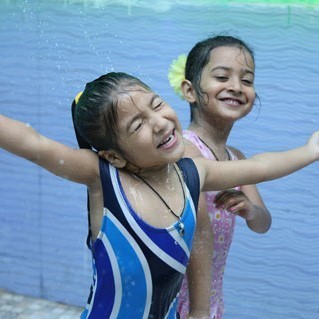
Select Maple Bear South Asia centres offer Bear Care, a programme that accepts infants from 6 weeks of age. Bear Care recognizes that the infant is a capable and active learner. The infant does not need to be “taught” lessons or content. The infant is respected as an already very competent learner, and is allowed, and encouraged, to explore, play, discover and practice in ways, and on a schedule, that best fits his or her emerging abilities, interests and skills. Schedules are arranged to best meet the needs of the infant. The infant’s day will have consistent and predictable routines, few transitions, and lots of time for repetition and practice. Infant programs cultivate an “unhurried” atmosphere. Maple Bear provides learning environments that keep the infant safe while allowing for exploration and discovery. Spaces and places have developmentally appropriate toys and furnishings that will accommodate the needs of crawlers, walkers and almost-walkers. Maple Bear recognizes the importance of the family. Daily communication between parents and program staff ensures that the well-being of the child remains a priority.
/uploads/school/not_verified_new.png)
